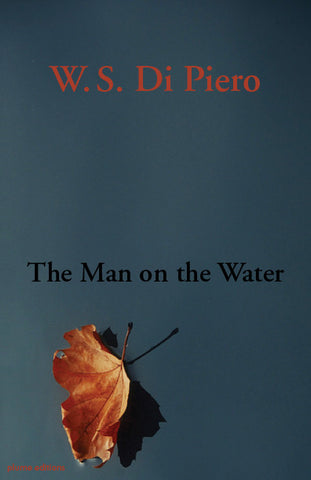The Man on the Water by W. S. Di Piero
R. P. Blackmur once said that great poetry “adds to the stock of available reality,” and that’s certainly true of W. S. Di Piero’s work. He wakes up the language, and in doing so wakes up his readers, whose lives are suddenly sharper and larger than they were before. He’s a great poet whose work is just beginning to get the wide audience it deserves.
—From the Ruth Lilly Prize commendation, Christian Wiman, Poetry
Di Piero looks at the world with a painter’s eye and a poet’s sense of craft. —Harvard Review
[Di Piero’s] poems have the texture of American cities, the sights, sounds, and especially the smells of where we’ve lived in the last thirty years, and he has caught our American voices in all their glory and banality, our diction and our inflections, even when we’re talking to ourselves. By some magic—let’s call it inspiration—he knows us even when there’s almost nothing to know.
—Philip Levine, Ploughshares
Di Piero’s powers of lyric and description are remarkable. His poems sense the flux in the center of all things, whether it is in a garden or in the center of a city. They are deserving of many readers.
—The American Book Review
Di Piero’s poems are uncomfortably realistic. Many of them give the impression of some chunk of life that has been mercilessly broken off and refigured on the page. The pain it takes to do this—to suffer experience into form—is the filament that ignites Di Piero’s temperament and which sizzles through everything that he writes.
—Threepenny Review






